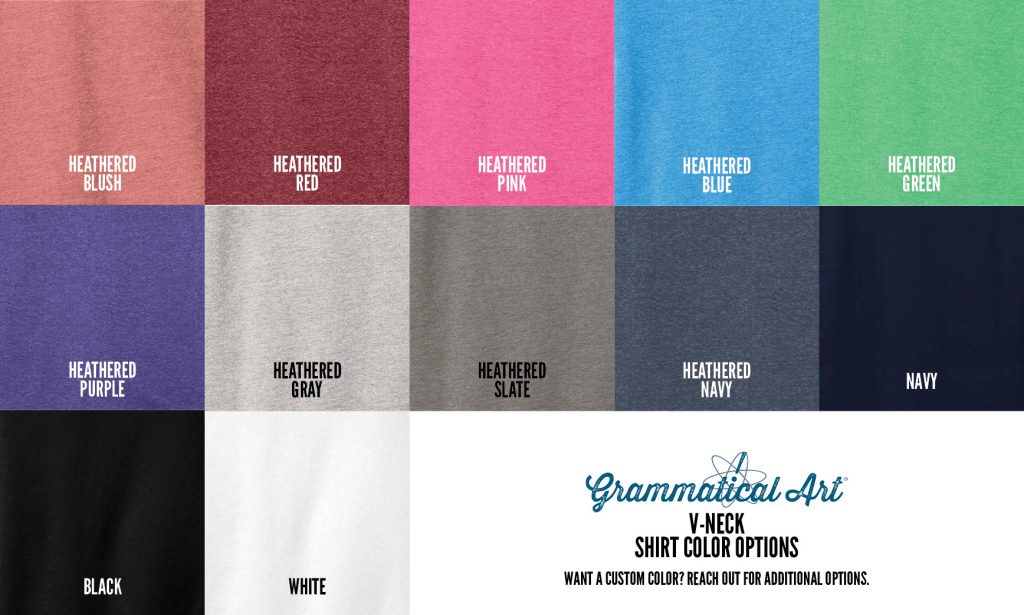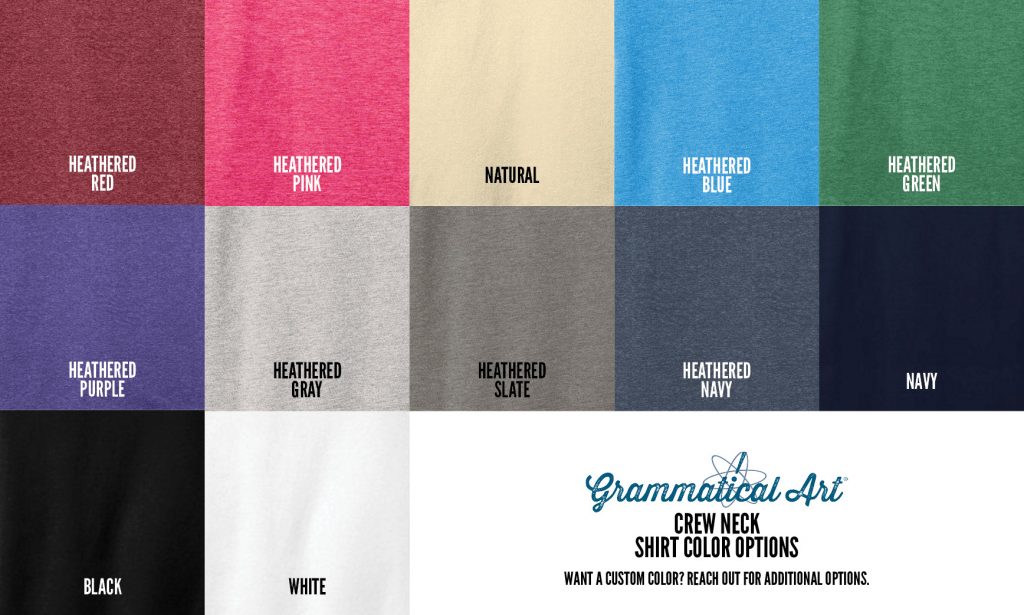Change is in the air: Winter is coming, the new year approaches, and here at Grammatical Art, we’ve got new colors for all our v-neck and crew neck tees.
Of course, change doesn’t happen without a little elbow grease, so a couple of weeks ago, we rolled up our sleeves and revamped our shop with all our new offerings: heathered red, heathered pink, heathered blush, heathered blue, heathered green, heathered purple, heathered navy, heathered gray, heathered slate… (Plus a few solid colors.)
You know when you say a word so many times it loses all meaning?
I typed the word “heathered” so many times that I skipped right past the meaningless stage and wandered into where-the-hell-did-this-word-even-come-from territory.
It should come as a surprise to no one that my innocent query eventually led to me hunched over the fine print of my dictionary. (That’s right, friends, I went old school for this one.)
Heathered comes from the adjective heathery, first used in 1535 to describe anything that resembled—yep, you guessed it—heather. Heather (noun) refers to heath (scientific name Calluna vulgaris), a plant native to northern and western Europe. Small and shrub-like, its skyward-facing stems are covered in small flowers that range from purple to pink, the two colors often bleeding into one another on the same petal.
And so heathery came not only to describe anything that resembled heath, but also those things that had flecks of various colors in them, particularly—drumroll please—fabrics.
The more you know.
You can check out all our flecked fabrics and the rest of our new colors for both our v-neck and crew neck styles below. Which one is your new fave?
*Title credit: Winona Ryder, c. 1989. Obviously.


